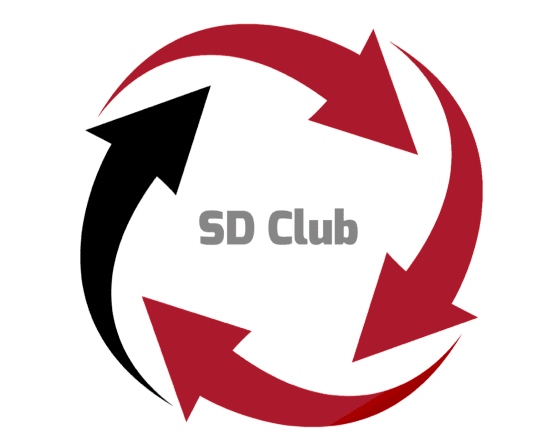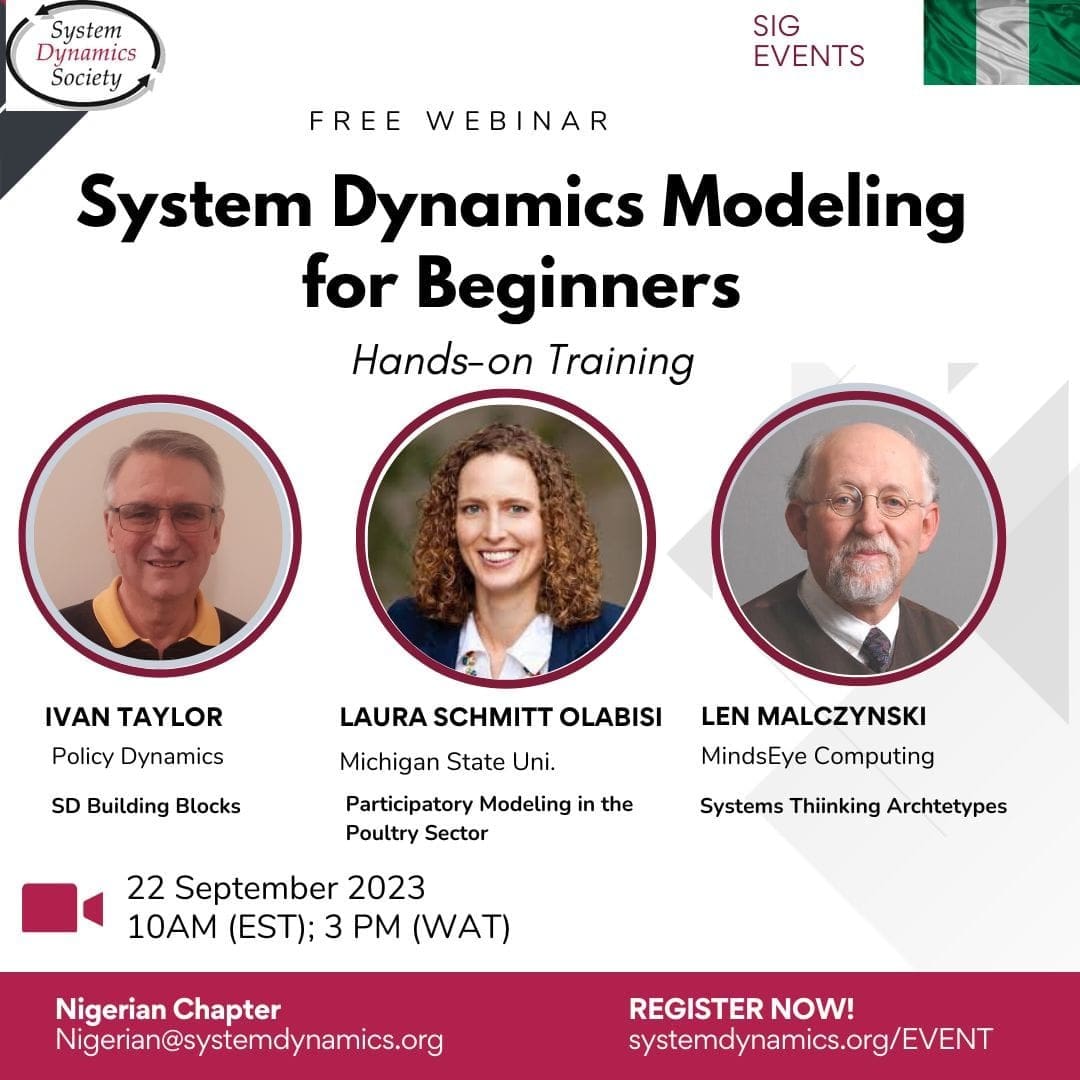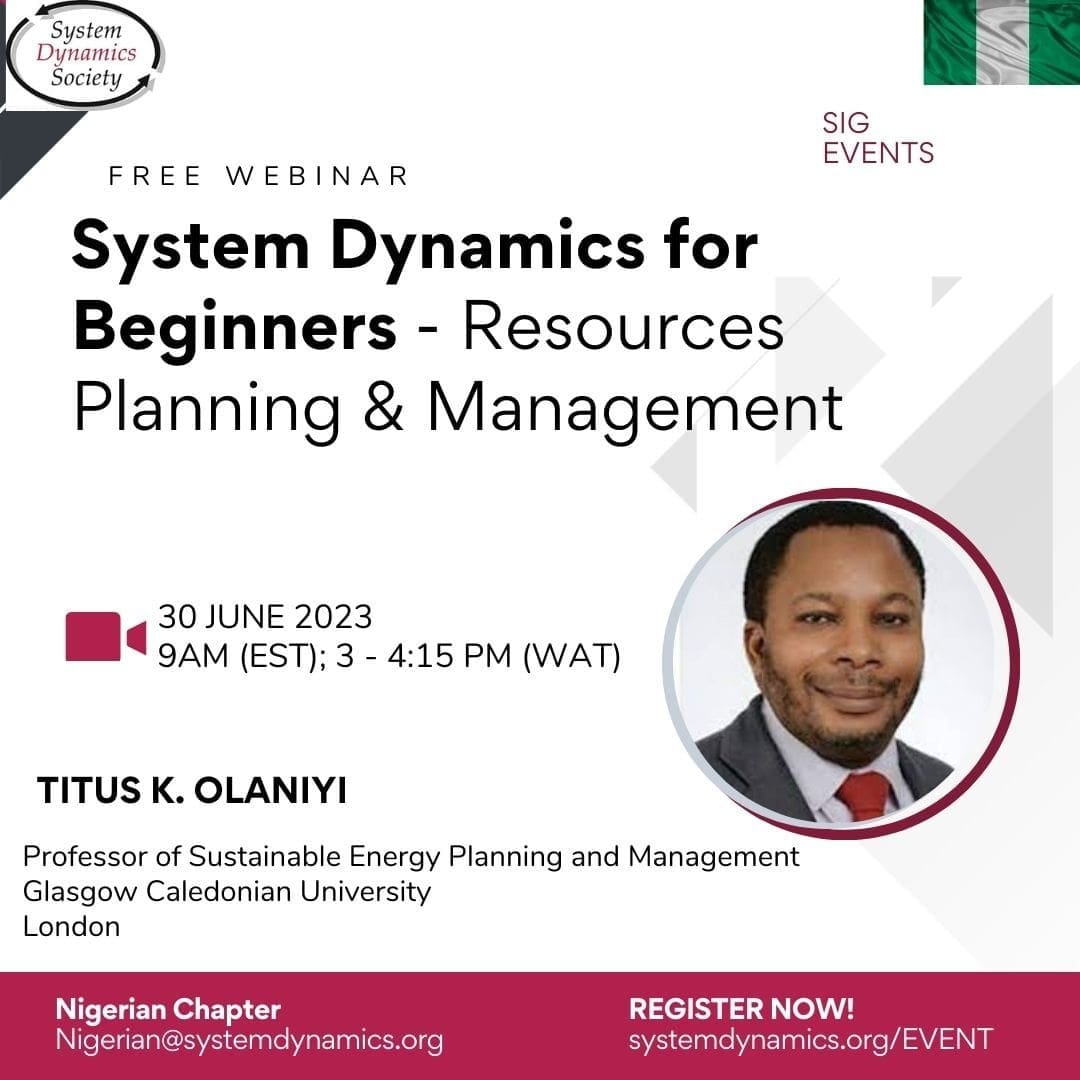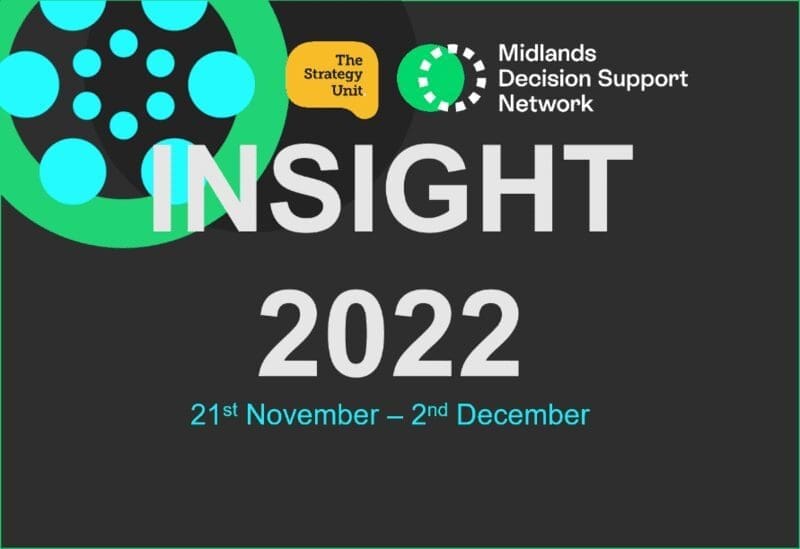Health Policy SIG Networking and Collaboration Event
Quarterly virtual social hour for the Health Policy SIG group (as requested by SIG membership at ISDC 2023!)
Tentative Agenda:
1) Update regarding potential website improvements & various SIG resources
2) SIG members share research interests
3) Breakout rooms for further discussion (as needed)
Vinaytosh Mishra – System Dynamics Modeling for Prevalence, Prevention, and Control of Diabetes
ABSTRACT: This work deals with the development of a system dynamics model for prevalence, prevention, and control of diabetes in Varanasi. The model was developed to explain the growth of diabetes since 2017 and portray possible future through 2050. The model simulations suggest characteristic dynamics of the diabetes population, including unintended increases in diabetes prevalence due to diabetes control, the inability of diabetes control efforts alone to reduce diabetes-related deaths in the long-term, and significant delays between prevention effort and improvement in diabetes outcomes.
The simulation model gives the prevalence of diabetes in Varanasi for the years 2030 as 0.52 million and 35.64 %. The study suggests involving 520 specialized doctors for management of diabetes in the city to achieve a ratio of one doctor per thousand population. The research examines the effect of the control efforts by using a ramped increase in the key performance variable over ten years.
The results conclude that despite the proposed policy measures the diagnosed diabetes population will decrease while undiagnosed diabetes population will increase and then decrease. Total population suffering from diabetes will increase irrespective of the policy measures, hence only option before policymakers is to tackle diabetes at prediabetes stage and make preventive and curative healthcare available at affordable cost. The method suggested by the study can be easily adapted for developing similar models for other chronic diseases like Asthma, Chronic Obstructive Pulmonary Disease (COPD) and Tuberculosis.
SPEAKER BIO: Dr. Vinaytosh Mishra is an Associate Professor for Healthcare Management (Management, Digital Health, and Heath Analytics) at the College of Healthcare Management and Economics, Gulf Medical University, Ajman (UAE). Dr. Mishra has done his engineering and Ph.D. from the prestigious India Insititute of Technology (BHU), Varanasi. He has more than 16 years of experience in industries like Healthcare, EdTech, Finance, and Information Technology. He is also a mentor for leading business incubators in India and UAE and a domain expert for AI implementation with Al Hathboor Bikal.ai, UAE.
Dr. Vinaytosh Mishra has published in journals of international repute (ABDC/Scopus/SSCI) and served as an editorial board member of reputed journals such as Hospital Topics, Frontiers in Digital Health, and Abhigyan. He also has an international patent in the field of image processing and NLP-based innovative solution in healthcare. His research interests include Digital Transformation, Healthcare Management, Health Economics, Healthcare Supply Chains, Complex Adaptive Systems, Healthcare Systems, and Digital Health.
Health Policy SIG Sept-2023: Claire Brereton — A systems approach to children’s health in Least Developed Countries
TITLE: A systems approach to children’s health in Least Developed Countries
ABSTRACT: There are 46 countries classified as ‘Least Developed’, where poverty, food insecurity and violence are part of everyday life. Life expectancy is 20 years less than in rich countries and education levels are low. Two thirds of Least Developed Countries (LDCs) are in sub-Saharan Africa.
If we want to improve the prospects of the poorest people on earth, children’s health is a good place to start. For children in LDCs, their chances of surviving childhood and thriving into adulthood are affected by the absence of things we take for granted; nourishing food, clean air, clean water and sanitation, access to basic health services and schooling. These factors all combine to affect children’s health and wellbeing in a complex reinforcing system.
LDCs have seen improvements in core measures of children’s health status such as infant death rates over the last 50 years but this has now plateaued, despite continuing efforts through aid programmes.
To understand the children’s health ‘system’ in LDCs, I developed a mental model (CLD). This was refined after visiting Solomon Islands, a remote LDC in the Western Pacific. From this I created a dynamic model and calibrated it (with difficulty) for Solomon Islands, to enable experimentation with different aid policy scenarios. There were many challenges; the biggest one being inaccurate and unavailable data. Uncertainty was reduced by building a small Bayesian Network as a comparator. Whilst the resulting model has many flaws, it is the first attempt to create a systems view of children’s health in LDCs and it shows how modelling can be useful, even with limited data. The scenarios produced some surprising and counter-intuitive results.
The presentation will briefly cover children’s health issues in Least Developed Countries. It will touch on the siloed thinking of current approaches to children’s health and will take a look at the models and key insights from the work. It will also show the user interface developed with policy makers in mind, which allows them to see the effects of different investments in children’s health.
BIO: Claire is a ‘mature’ PhD student with a few career changes behind her. Her first ‘real’ job was working for IBM in the UK as a software developer. 20 years later she migrated to Australia with a resume which claimed ‘IT executive’. It was in Queensland that she first became involved with the health sector, setting up IT call centres and digitising health systems. In 2008 she started a consultancy business and offered both project rescue services (digging projects out of holes) and IT governance advice (how to avoid the holes). In 2014 she embarked on a Master of Public Health degree, which opened her eyes to the health challenges which developing countries face. Somehow, this led to a PhD entitled ‘Children’s Environmental Health in Least Developed Countries: a modelling approach to support policy decisions’. Systems dynamics became the core of the PhD but it took a year of investigation before she understood how she could use it in her research. The PhD is almost finished and she is hoping to use the results for good. Claire is a Fellow both of the Australian Computer Society and the Australian Institute of Company Directors.
Moo-Hyuk Lee on “Understanding Patient Outmigration from the Patients’ and Providers’ Perspective: A System Dynamics Approach”
Please join us online Friday, October 27th 11AM ET (Boston time. Here is a time converter). In this Collective Learning Meeting (CLM), WPI System Dynamics will host Moo-Hyuk Lee (mooohyuk@gmail.com) who will present
Understanding Patient Outmigration from the Patients’ and Providers’ Perspective: A System Dynamics Approach
Short Description: This presentation delves into our ongoing work on patient outmigration in South Korea. Outmigration, a characteristic phenomenon of the South Korean health system, refers to patients bypassing local hospitals and traveling further to Seoul (the capital city of South Korea) to receive treatment. To unravel the dynamic mechanisms driving outmigration, we designed a causal loop diagram which examined this phenomenon from the patients’ and providers’ perspective. At its simplest level, decrease in objective quality of the provincial hospitals induces the increase in outmigration through the decrease of perceived quality, which then results in quality deterioration by discouraging healthcare providers from working in provincial areas, forming a vicious cycle and reducing trust towards the healthcare system. An early stage of this model was presented at the Student-Organized Colloquium (SOC) of the International System Dynamics Conference (ISDC) in July 2023. Question(s) for the Audience: I seek general feedback on each aspect of the causal loop diagram. I would also like to get insights on what to do next in order to continuously develop the model. Biography: I am a master’s student in Health Policy and Management in Seoul National University College of Medicine, Seoul, South Korea. My undergraduate major was in medicine. I am interested in the use of complex systems approach in healthcare, with prior experiences in agent-based modeling. Since I am relatively new to system dynamics, I would like this presentation to be a valuable opportunity for improving and refining my work. www.linkedin.com/in/moohyuklee001 Recording: We will record this presentation. Moo-Hyuk will share it by request. If you are interested in presenting your work, please contact Christine Tang (ctang@wpi.edu).
System Dynamics for Beginners – Hands-on Training
System Dynamics for Beginners – Hands-on Training
The Nigerian Chapter of the System Dynamics Society is putting together some seminars to teach system dynamics to beginners across different walks of life. We started with System Dynamics Building Blocks for Beginners (click here to watch the recording).
The seminars will try to address specific, real-life issues and are designed to be easy for anyone to follow. The context and case studies (including models) will reference topics relevant to Nigeria and as such will capture some of the uniqueness of the Nigerian context. However, they can be applied to other countries.
If are you interested in learning how to build simple system dynamics models, participate in group model building, or understand the feedback structures of essential systems, then these seminar events are for you.
DESCRIPTION
This seminar is a follow up on previous series which are available here. This event will be practical and require laptop computers.
The session will take you step by step on how to address specific, real-life issues. You will among other things learn about stocks, flows, and converters, systems thinking, how to build simple system dynamics models, participate in group model building, and understand the feedback structures of systems.
Relevant software can be got from links below
ABOUT THE NIGERIAN CHAPTER
The objectives of the Nigerian Chapter of the System Dynamics Society
- Developing and encouraging educational programs that promote systems thinking at all levels of education in Nigeria.
- Promoting the development of the field of System Dynamics that will enhance the free interchange of learnings, ideas and meaningful research in all related fields.
- Identifying, extending and unifying knowledge contributes to understanding feedback systems in Nigeria and Africa.
- Becoming a body of knowledge in the development of models to help Nigerian public and private institutions.
- Becoming a significant training centre with the mandate to spread systems thinking and system dynamics education across all the states in Nigeria.
To contact the Nigerian chapter, please send an email to nigerian@systemdynamics.org or visit our page.
To watch previous seminar recordings, you can visit our YouTube playlist. Make sure to subscribe and click the notification button so you are notified when we share a new video.
Health Policy SIG Meeting at ISDC 2023
We will meet in person (Crystal Room) at the 2023 International System Dynamics Conference in Chicago.
Our primary focus for this meeting will be community building and encouraging members to share their work in upcoming SIG meetings.
We will also discuss our strategy for maintaining effective SIG leadership going forward.
System Dynamics for Beginners – Resources Planning & Management
System Dynamics for Beginners – Resources Planning and Management
The Nigerian Chapter of the System Dynamics Society is putting together some seminars to teach system dynamics to beginners across different walks of life. We started with System Dynamics Building Blocks for Beginners (click here to watch the recording).
The seminars will try to address specific, real-life issues and are designed to be easy for anyone to follow. The context and case studies (including models) will reference topics relevant to Nigeria and as such will capture some of the uniqueness of the Nigerian context. However, they can be applied to other countries.
If are you interested in learning how to build simple system dynamics models, participate in group model building, or understand the feedback structures of essential systems, then these seminar events are for you.
DESCRIPTION
In this fourth seminar, Prof. Titus Kehinde Olaniyi will be presenting on System Dynamics for Beginners – Resources Planning and Management.
Note: This seminar will be hands-on. Make sure to join with your laptop to practice.
Details of the seminar can be found on the flyer.
Make sure to RSVP and add the event to your calendar. Click the “Join the Meeting” button on this page to join the Zoom room when it is time.
ABOUT THE NIGERIAN CHAPTER
The objectives of the Nigerian Chapter of the System Dynamics Society
- Developing and encouraging educational programs that promote systems thinking at all levels of education in Nigeria.
- Promoting the development of the field of System Dynamics that will enhance the free interchange of learnings, ideas and meaningful research in all related fields.
- Identifying, extending and unifying knowledge contributes to understanding feedback systems in Nigeria and Africa.
- Becoming a body of knowledge in the development of models to help Nigerian public and private institutions.
- Becoming a significant training centre with the mandate to spread systems thinking and system dynamics education across all the states in Nigeria.
To contact the Nigerian chapter, please send an email to nigerian@systemdynamics.org or visit our page.
To watch previous seminar recordings, you can visit our YouTube playlist. Make sure to subscribe and click the notification button so you are notified when we share a new video.
MIT System Dynamics Seminar | Complex Contagions and the Hidden Influence of the Network Periphery
Please visit the MIT System Dynamics Seminars page for more information.
You are invited to attend the System Dynamics Seminar being held on Friday, April 21st from 12:30-2:00pm EST in the Jay W. Forrester conference room, E62-450, or via Zoom: https://mit.zoom.us/j/99908059742 (Password: SDSP23). Our guest speaker will be Douglas Guilbeault (Haas School of Business, UC Berkeley) presenting Complex Contagions and the Hidden Influence of the Network Periphery (see abstract and brief bio below, announcement attached). Lunch will be provided to those attending in person and a reminder email will be sent out closer to the date.
If you would also like to schedule a 30-minute 1:1 meeting with him before or after the seminar, please fill out the following Doodle poll by COB Tuesday, April 18th and I will confirm times and location with a calendar invite: https://doodle.com/meeting/participate/id/boZ0Rxja. Please notify me if you need to meet over Zoom instead.
Abstract
The standard measure of distance in social networks – average shortest path length – assumes a model of “simple” contagion, in which people only need exposure to influence from one peer to adopt the contagion. However, many social phenomena are “complex” contagions, for which people need exposure to multiple peers before they adopt. In this talk, I argue that the classical measure of path length fails to define network connectedness and node centrality for complex contagions. I provide theoretical and empirical evidence that centrality measures and seeding strategies based on the classical definition of path length frequently misidentify the network features that are most effective for spreading complex contagions. To address these issues, I introduce novel measures of complex path length and complex centrality, which significantly improve the capacity to identify the network structures and central individuals best suited for spreading complex contagions. I validate this theory using empirical data on the spread of a microfinance program in 43 rural Indian villages. Implications for human cultural evolution are discussed.
About the Presenter
Douglas Guilbeault is an Assistant Professor in the Management of Organizations Group at the Haas School of Business. He studies how communication networks underlie the creation and diffusion of cultural content, such as linguistic categories and social norms. This investigation extends to how communication dynamics are shaped by various sources of influence, such as organizational culture and social media. His work has appeared in a number of top journals, including Nature Communications, The Proceedings of the National Academy of the Sciences, and Management Science, as well as in popular news outlets, such as The Atlantic, Wired, and The Harvard Business Review. Guilbeault’s work has received top research awards from The International Conference on Computational Social Science, The Cognitive Science Society, and The International Communication Association. He is co-director of the Berkeley-Stanford Computational Culture Lab, and he is a faculty affiliate of the Berkeley Institute for Data Science. He received his Ph.D. from the University of Pennsylvania, where he trained with sociologist Damon Centola in the Network Dynamics Group.
MIT System Dynamics Seminar | First Look at ReThink Health’s Multisolving Investment Model, Part II
Please visit the MIT System Dynamics Seminars page for more information.
You are invited to attend the System Dynamics Seminar being held on Friday, March 10th from 12:30-2:00pm EST in the Jay W. Forrester conference room, E62-450, or via Zoom: https://rippel-org.zoom.us/j/86004993630 (Passcode: 767250)*. Our guest speakers will once again be Jack Homer, Bobby Milstein, and Chris Soderquist (ReThink Health) presenting First Look at ReThink Health’s Multisolving Investment Model, Part II. Lunch will be provided to those attending in person.
*Please note that we are using a different Zoom link for this seminar
Abstract
Picking up where the Thriving Together Theater leaves off, this session will offer a first look at ReThink Health’s next-generation simulation tool, which we call a Multisolving Investment Model. This new tool will help stewards see for themselves WHY certain investments are especially powerful multisolvers in our quest to thrive together (such as efforts to establish racial fairness as a matter of system design; expand belonging and civic muscle; and secure the other vital conditions). As far as we know, this is the first dynamic model to track population-level changes in well-being separately by race/ethnicity, which in turn lets planners see how everyone benefits we invest more among those who have the most to gain.
During this “First Look” session, we will share (1) the origin story of this new model; (2) design features of a working prototype including a dynamic hypothesis, empirical sources, and calibration; as well as (3) insights from initial tests, including illustrative investment scenarios, optimization, and sensitivity to uncertainties. Together, we will discuss ideas for potential use-cases and facilitation options. But this session will largely concentrate on early insights from the new prototype model.
Technical Background: The new Multisolving Investment Model uses the vital conditions framework and builds upon two prior simulation models built to study investment scenarios. Here are background references about those three elements.
- Milstein B, Payne B, Kelleher C, Homer J, et.al. Organizing Around Vital Conditions Moves the Social Determinants Agenda into Wider Action.
Health Affairs Forefront. 2023; Feb 2. https://tiny.cc/VitalConditionsHA - Milstein B, Homer J, Soderquist C. How Can a Community Pursue Equitable Health and Well-Being after a Severe Shock? Ideas from an Exploratory Simulation Model. Systems. 2022;10(5):158. https://www.mdpi.com/2079-8954/10/5/158 (see also this self-guided online interface)
- Milstein B, Homer J. Which Priorities for Health and Well-Being Stand Out After Accounting for Tangled Threats and Costs? Simulating Potential Intervention Portfolios in Large Urban Counties. The Milbank Quarterly. 2020 February 6:1-27. https://onlinelibrary.wiley.com/doi/abs/10.1111/1468-0009.12448
Please visit https://sloangroups.mit.edu/saas/home/ for more information on all of the Academic Areas research seminars happening this semester.
INSIGHT 2022
The Midlands Decision Support Network in association with The Strategy Unit are hosting INSIGHT 2022 our annual festival of learning and sharing events for the NHS, local government and other partners across health and care.
This year’s festival is from Monday 21st November until Friday 2nd December and includes a mixture of talks, workshops and panel discussions. The theme is ‘The science and craft of decision making’.
The rest of the content stays the same .. for now. We might add a bit of reasoning for the change but not yet …
Decision-making is a core task of leadership, but one which is often under-examined – the programme will explore what high-quality decision-making looks like and how staff across health and care can make the best use of the analysis available to them.
Sessions will be delivered virtually. The festival is open to everyone working in health and care and every session is free.
Attendees can commit as little or as much time as they’d like. Most of the sessions will be recorded so you can fit them into your schedule in a way that suits you.
Confirmed speakers include:
- Alastair McLellan (Editor, Health Service Journal)
- Nigel Edwards (Chief Executive, The Nuffield Trust)
- Dr Bola Owolabi (Director – Health Inequalities, NHS England and NHS Improvement)
- Sir David Dalton (Governor, The Health Foundation)
- Julian Huppert (Director of the Intellectual Forum, Jesus College Cambridge)
- Ben Marshall and Michael Lawrie (Ipsos UK)
- Rony Arafin (Chief Executive Officer, AphA)
- Professor Angie Hobbs (Professor of the Public Understanding of Philosophy, University of Sheffield)
- Andi Orlowski (Director, The Health Economics Unit)
- Integrated Care Board Chief Executives from the Midlands region (including Amanda Sullivan, John Turner, Phil Johns, Toby Sanders)
- Eric Wolstenholme (Symmetric Scenarios) will present on
Understanding the links between Delayed Discharges and Hospital Congestion
Delayed discharge is a persistent problem in hospitals and there is growing momentum to address it. However, solutions are still elusive and decisions need to be made on the role of ICSs and government to help fund discharge.
This presentation suggests that the potential savings to health from reducing delays to discharge are being significantly underestimated in current solutions. Solving delayed discharge does directly save bed costs, but can also significantly reduce congestion, the use of reactive strategies to counter congestion and the unintended consequences of these for patients, staff and performance.
The talk will use system maps and archetypes to trace out feedback connections within hospital patient flows which give rise to congestion. It will be pertinent to those interested in the way hospitals function and/or the use of practical systems methods, but minimum analytical knowledge is necessary.
Eric Wolstenholme is a Professor of Management Science and Business Learning and has consulted and published widely in systems thinking and system dynamics. The presentation will allow time for questions/discussion and be available on line.
Associate readings are:
Wolstenholme, E.F. Using Cascaded and Interlocking Generic System Archetypes to Communicate Policy Insights—The Case for Justifying Integrated Health Care Systems in Terms of Reducing Hospital Congestion. Systems 2022, 10,135. https://doi.org/10.3390/ systems10050135 https://www.mdpi.com/2079-8954/10/5/135/pdf
Wolstenholme, E., McKelvie, D. (2019). Towards a Dynamic Theory of How Hospitals Cope in Times of High Demand. In: The Dynamics of Care. Springer, Cham. https://doi.org/10.1007/978-3-030-21878-2_10
Programme of events coming soon…
#INSIGHT2022, @MidlandsDSN





